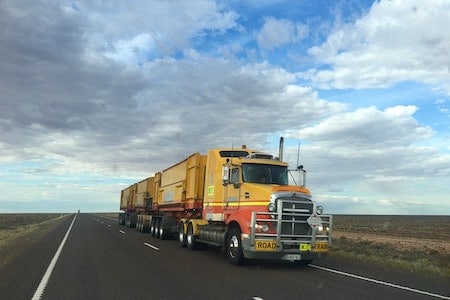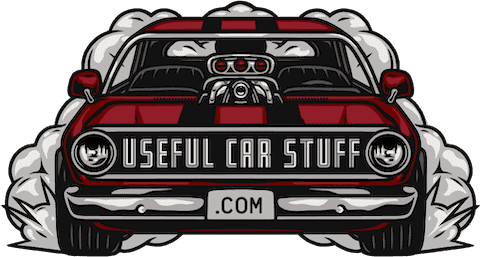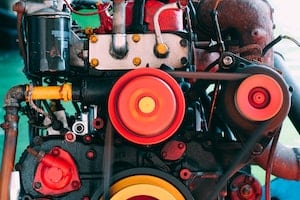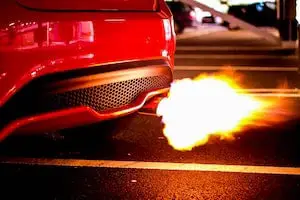heavy duty, high compression, huge torque, black smoke producing diesel trucks are a favorite among many truck and car owners. They are loud, manly, and powerful. But what makes them produce so much smoke, why is it black smoke and sometimes white or blue and how about how diesel trucks can seemingly produce enormous clouds of smoke on demand?
Why do Diesels Blow Smoke out the exhaust?
Diesel engines produce dark clouds of smoke from the exhaust under heavy load because more diesel is injected than can be burned up and and results in unburned fuel that leaves the exhaust as carbon/soot which is the black smoke. This can occur when the throttle is opened abruptly, and more diesel is injected than can be burned up which is how diesel trucks can produce huge clouds of smoke on demand.
Diesel engines draw in a constant amount of air with only the amount of diesel fuel varied, unlike gasoline engines that change the amount of gasoline and air together. This is also the reason for why diesels often produce smoke and the color varies. Sometimes the smoke is white, black, and can even be blue. I will explain what is different colors of smoke mean and why they are produced.

Why Diesel Engines Blow Smoke
Black smoke is emitted from the exhaust pipe of diesel engines as soot because there is unburned fuel in the exhaust.
This is completely normal for a diesel engine.
Diesel engines blow black smoke because of the way they are designed. Diesel engines combust diesel fuel purely with high pressure and heat. Glow plugs are used when the engine is cold to warm up the air in the engine cylinders and once the engine is going, the glow plugs are not needed and purely the very high compression and heat of the engine is enough to combust the diesel.
Diesel burns different from gasoline and is able to burn very lean efficiently. For this reason, only the amount of diesel fuel is regulated and the air intake is open the same amount all the time.
Diesel engines regulate fuel consumption this way because diesel is able to burn efficiently when lean. Unlike gasoline engines that will be damaged when run too lean.
At idle and low speeds this leaved diesels running lean and only when the throttle is wide open is more fuel injected than can be used up.
White smoke is normal when the engine is cold or upon startup but the engine should not continually blow white smoke out the exhaust.
Black Smoke from Diesel Exhaust
Black smoke from a diesel exhaust indicates unburned fuel. Meaning, more diesel fuel is being injected into the engine than can be fully used up in the combustion process. The unburned fuel gets forced out of the engine through the exhaust pipe with the exhaust gases and comes out as carbon. These carbon molecules are what cause a cloud of black smoke.
Black clouds of diesel from the exhaust can be produced on demand by simply stepping on the gas to wide open throttle. This injects more diesel into the engine than can be combusted and produces a great cloud of black smoke.
Diesel Smoke Pollution
Big clouds of black smoke from a diesel exhaust are polluting and can be damaging to the environment and friendly, smart diesel drivers avoid producing these clouds of smoke intentionally.
Although diesel engines notoriously produce large clouds of smoke and unburned fuel leaves the exhaust in the form of a big black cloud, the good news is that most of this carbon emitted is heavy enough that it does not rise up in the air and rather falls to the ground.
White Smoke from Diesel Exhaust
White smoke is produced commonly from diesel exhaust when the engine is cold and is most often from condensation in the exhaust pipe or muffler.
Lots of white smoke indicates a problem most likely with the fuel injectors or other aspect of the fuel delivery system.
White smoke may also be from the normal combustion process of a diesel engine. White smoke is often emitted from the exhaust until the ideal ignition temperature has been reached. White smoke may also be an indication of incomplete combustion just like black smoke is. It can also be the result of too low of an ignition temperature. Once the engine is warmed up, the opacity of exhaust smoke is reduced.
Blue Smoke from Diesel Exhaust
Blue smoke from diesel exhaust is the result of burning oil. This generally means oil is being burned up in the cylinders, or can also be burned in the turbo chargers. It is not normal for blue smoke to be coming from a diesel and the cause should be determined and addressed.


